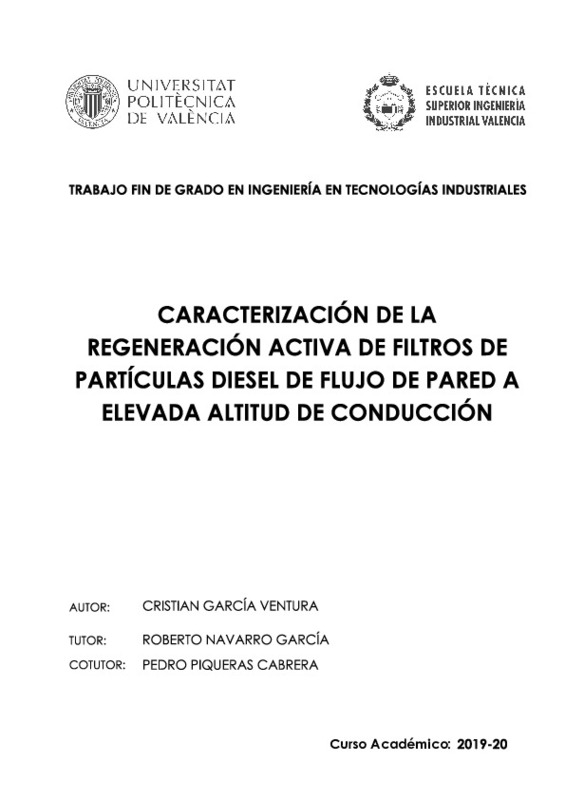JavaScript is disabled for your browser. Some features of this site may not work without it.
Buscar en RiuNet
Listar
Mi cuenta
Estadísticas
Ayuda RiuNet
Admin. UPV
Caracterización de la regeneración activa de filtros de partículas Diesel de flujo de pared a elevada altitud de conducción
Mostrar el registro completo del ítem
García Ventura, C. (2020). Caracterización de la regeneración activa de filtros de partículas Diesel de flujo de pared a elevada altitud de conducción. http://hdl.handle.net/10251/151855
Por favor, use este identificador para citar o enlazar este ítem: http://hdl.handle.net/10251/151855
Ficheros en el ítem
Metadatos del ítem
| Título: | Caracterización de la regeneración activa de filtros de partículas Diesel de flujo de pared a elevada altitud de conducción | |||
| Autor: | García Ventura, Cristian | |||
| Director(es): | ||||
| Entidad UPV: |
|
|||
| Fecha acto/lectura: |
|
|||
| Resumen: |
[ES] En este trabajo se lleva a cabo la caracterización del proceso de regeneración del filtro de partículas de un motor Diesel de Renault, el K9K EURO6d-temp.
Para ello, se ha tenido en cuenta el impacto del aumento de ...[+]
[EN] This project consists in the characterization of the regeneration process in a particle filter of a Renault Diesel engine, the K9K EURO6d-temp.
For this purpose, the study takes into consideration the effect of ...[+]
|
|||
| Palabras clave: |
|
|||
| Derechos de uso: | Reserva de todos los derechos | |||
| Editorial: |
|
|||
| Titulación: |
|
|||
| Tipo: |
|
Localización
recommendations
Este ítem aparece en la(s) siguiente(s) colección(ones)
-
ETSII - Trabajos académicos [10490]
Escuela Técnica Superior de Ingenieros Industriales







